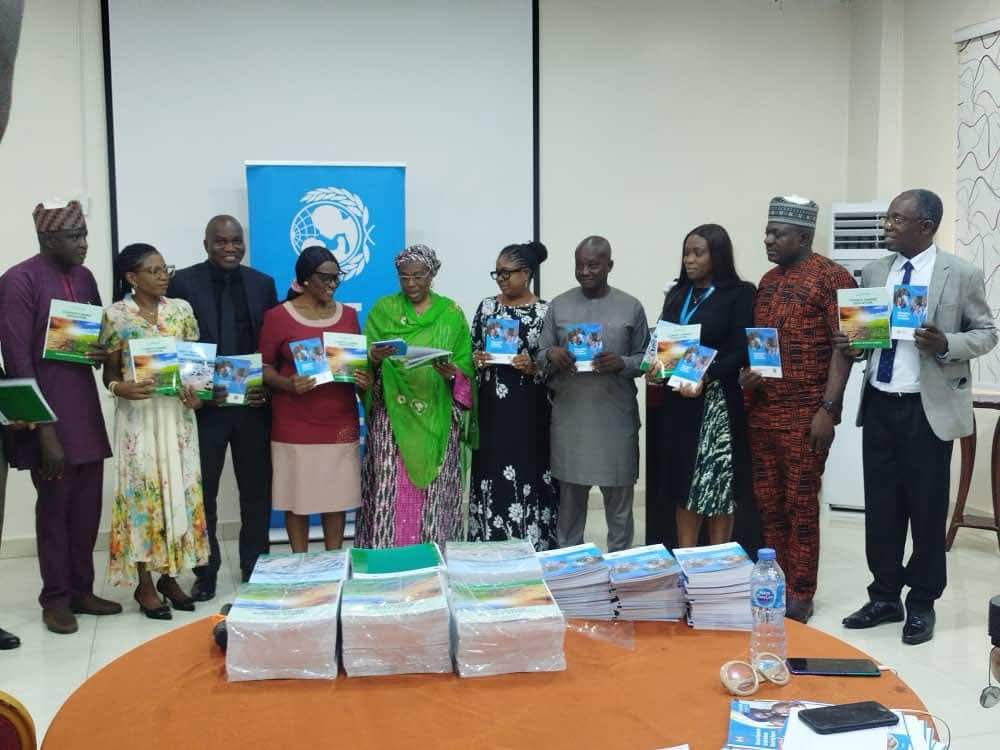FG Launches School Safety, Climate Awareness Handbooks Across Nigeria

In a major step towards safer and climate-resilient learning environments, the Federal Ministry of Education, in collaboration with the Universal Basic Education Commission (UBEC) and technical support from UNICEF, has unveiled three vital handbooks aimed at promoting safety, climate awareness, and violence prevention in Nigerian schools.
The handbooks—Climate Change Education for Schools in Nigeria, Early Warning: A Guide to Protecting Schools in Nigeria, and Managing School-Related Violence in Nigeria—were officially launched at a one-day dissemination and validation workshop held on Monday, 16th June 2025, at the Hawthorn Suites, Abuja.
Representing the Minister of Education, the Permanent Secretary of the Ministry, Mr. Abel Olumuyiwa Enitan, through the Director of Education Support Services, Hajiya Larai Ahmed, described the initiative as a landmark achievement. He noted that the handbooks had received ministerial approval for nationwide adoption and would serve as transformative tools to strengthen safety standards and environmental education in schools.
Delivering remarks on behalf of UNICEF Nigeria’s Chief of Education, Education Specialist Mrs. Nneka Ogbansiegbe revealed that the handbooks were developed following extensive assessments conducted in over 16,000 schools across 18 states. Findings showed that only 25% of schools met the minimum safety standards, highlighting the urgent need for practical solutions.
“This initiative is not just about publications—it is about empowering schools with tools based on real data and policy frameworks,” she said.
UBEC’s message, delivered by Mrs. Blessing Uzoamaka on behalf of Mrs. Patience Omoniyi, stressed the need for safe and secure learning environments. She called for collective action to eliminate threats such as violence and climate-related hazards in schools.
UNICEF Education Specialist Mr. Believe Eke presented the Minimum Standards for Safe Schools (MSSS) scorecard and emphasized the importance of building local capacity, particularly in rural and underserved schools.
Principal Education Officer Dr. Caroline Olaitan provided insight into the handbook development process, which involved stakeholder consultations, pilot testing, and UNICEF-supported design work. She said the resources were created to be user-friendly and visually engaging.
Presentations on the contents and practical uses of the three handbooks were delivered by Dr. Kayode Fagbemi (Climate Change), Dr. Tersoo Shapera (Early Warning), and Dr. Myfriend Bulus (Violence Prevention), each highlighting how the guides can be effectively used to respond to current education sector challenges.
The event concluded with a call for stakeholders to move “from paper to practice,” reinforcing the Ministry’s commitment to inclusive and safe education for every Nigerian child.

